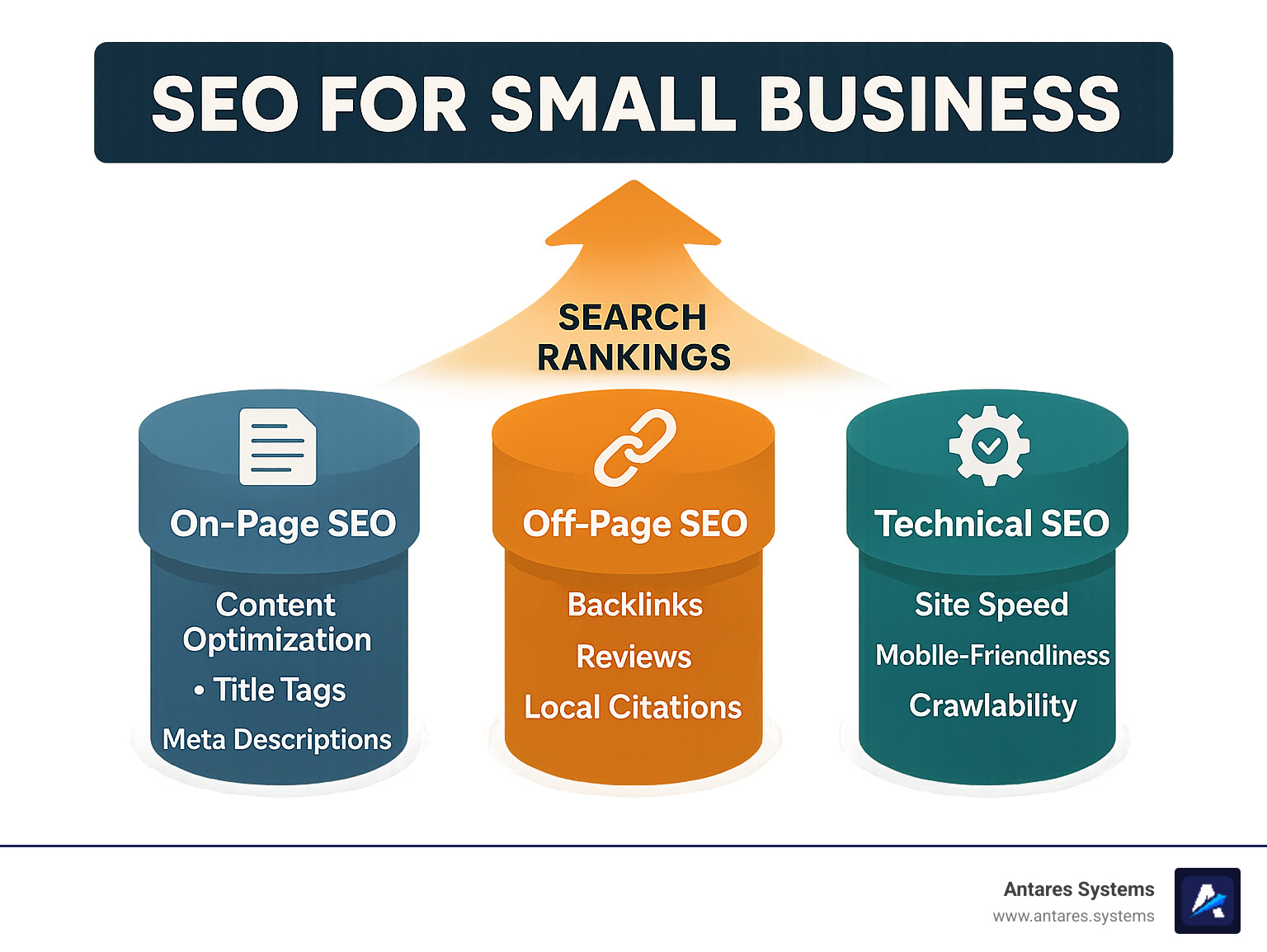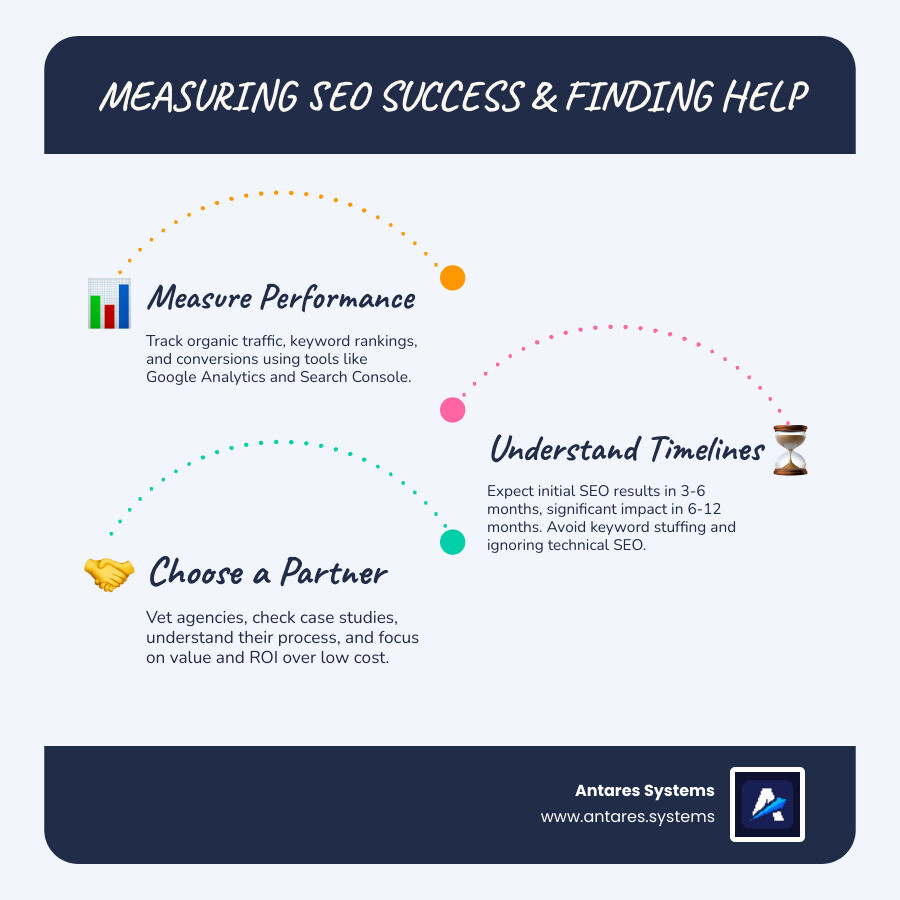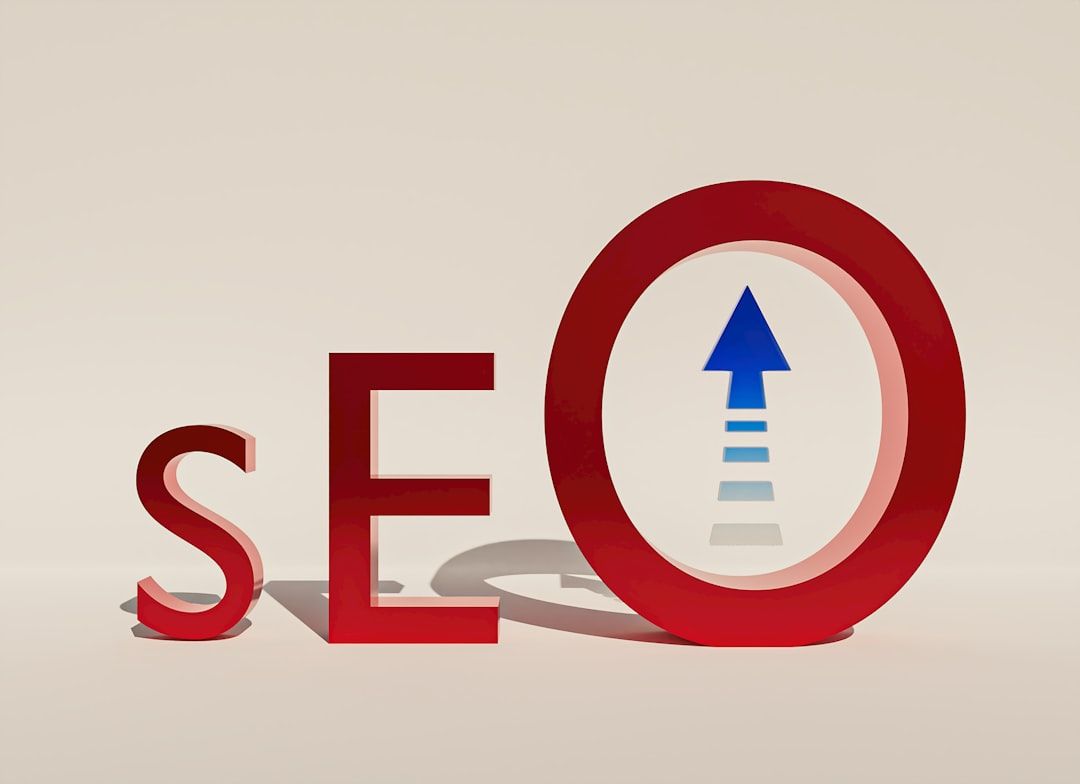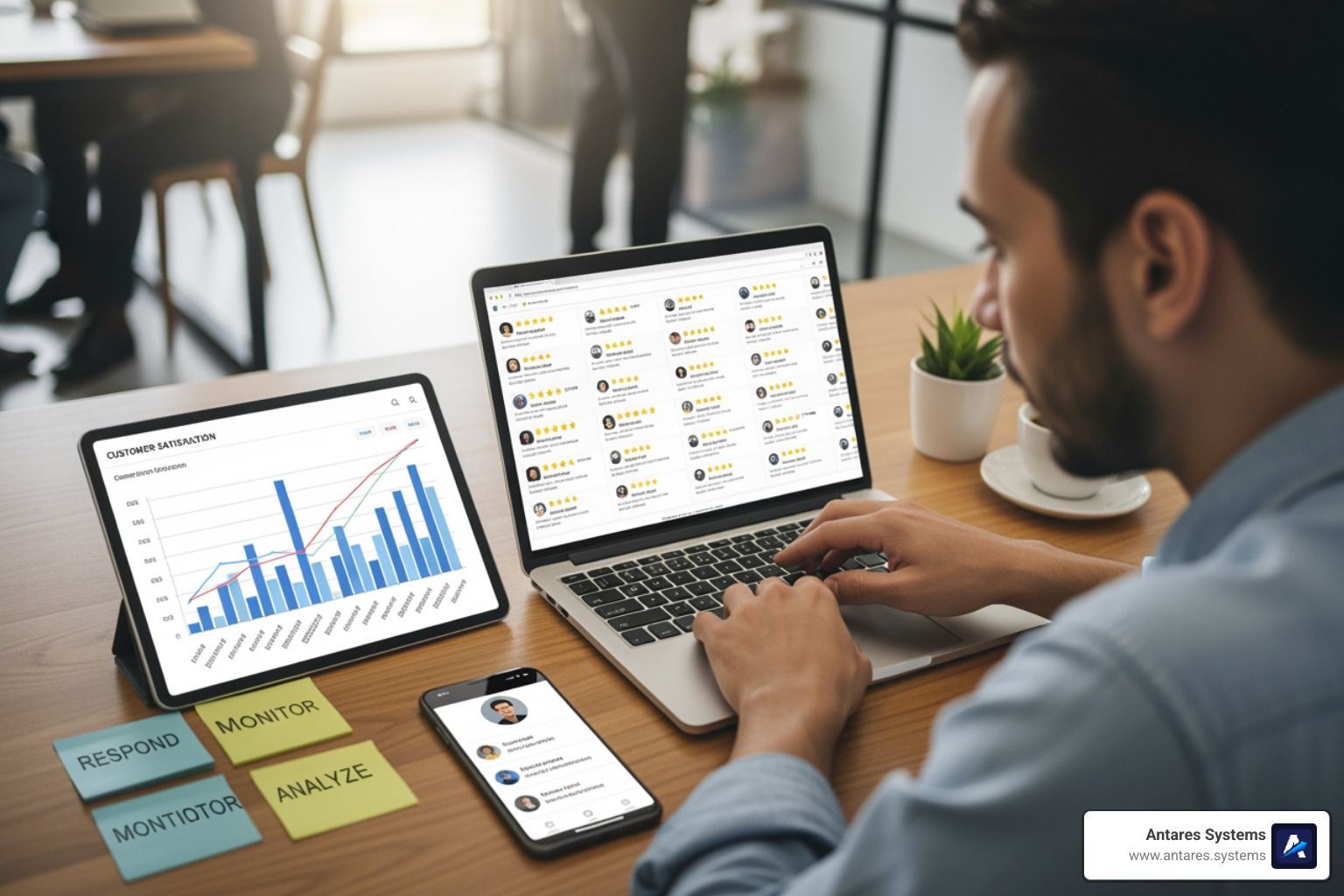The Definitive Guide to SEO for Small Business

Why Your Small Business Can't Afford to Ignore SEO
SEO for small business is the process of optimizing your website to rank higher in search results, helping potential customers find you when they need you most. For contractors, lawyers, and other service providers in the Rio Grande Valley, a strong SEO strategy is no longer optional.
Essential SEO components include:
- On-Page SEO: Optimizing your website's content and structure.
- Off-Page SEO: Building authority through reviews and backlinks.
- Technical SEO: Ensuring your site is fast and mobile-friendly.
- Local SEO: Appearing in "near me" searches and on Google Maps.
Many business owners feel overwhelmed by SEO, often due to past experiences with agencies that overpromised and underdelivered. But the data is clear: organic search accounts for 53% of all website traffic and drives a significant portion of revenue. While competitors spend on ads that vanish when the budget runs out, SEO builds sustainable, long-term growth.
SEO is particularly powerful for local businesses because almost half of all Google searches have local intent. When someone in McAllen searches for "plumber near me," you need to be the first result they see. This isn't about gaming the system; it's about making your website genuinely helpful to users. Effective SEO rests on three pillars that work together to create a solid foundation for your online presence.

Understanding the SEO Landscape for Small Businesses

When a potential customer in Mission or Brownsville needs a service, they grab their phone and search. SEO for small business is about being the answer they find. It's not just about getting found online—it's about being found by the right people at the right moment. Your job is to signal to Google what problems you solve and who you solve them for. For a deeper dive, check out our guide on What is SEO? Maximizing Online Visibility.
What is SEO and Why is it Important?
Search Engine Optimization is the process of making your website more attractive to search engines. The goal is to appear on the first page of Google, because only 0.63% of users click on the second page. If you're not on page one, you're practically invisible.
Proper SEO delivers powerful benefits:
- Organic Visibility: Show up in search results without paying for every click.
- Brand Awareness: Become a recognized name in your service area.
- Lead Generation: Attract customers who have a specific problem and are ready to buy.
- User Experience: A faster, mobile-friendly site pleases both Google and your customers.
Google's Search Engine Optimization (SEO) Starter Guide provides excellent foundational knowledge.
SEO vs. Local SEO: What's the Difference?
Many small businesses mistakenly think they need to compete with national giants. This is where understanding the difference between general and local SEO is crucial.
General SEO targets a broad, national audience. It's ideal for e-commerce stores or nationwide service providers.
Local SEO is your secret weapon. It focuses on dominating your local market by targeting customers in a specific geographic area. When someone in Harlingen searches for "roof repair," local SEO ensures your business appears. This is vital, as almost half of all Google searches have local intent.
These local searchers are ready to act, with many visiting a business within five miles. The goal is to land in the Google Map Pack —the three businesses featured at the top of local results. With local SEO, you're not competing with the world, just your local competitors, many of whom aren't doing it right. This creates a huge opportunity for you. If you're ready to dominate your local market, our Ultimate Guide to Growing Your Business with Local SEO shows you how. Understanding search intent is the key to success for any brick-and-mortar business or e-commerce store.
The Three Pillars of SEO for Small Business
Effective seo for small business rests on three pillars: On-Page SEO, Off-Page SEO, and Technical SEO. Think of them as the foundation of a house; neglecting one makes the entire structure unstable. Mastering all three creates a solid base for long-term growth.
On-Page SEO: Optimizing Your Website's Content
On-Page SEO involves everything you control directly on your website to improve its appeal to users and search engines. Key elements include:
- Title Tags: The clickable headline in search results. It should grab attention and include your main keyword. Learn how to craft them in The Ultimate Guide to Optimizing Your Title Tags.
- Meta Descriptions: The short summary under your title tag. It convinces users to click on your result.
- Header Tags (H1, H2): These organize your content, helping readers and search engines understand the page's structure.
- URL Structure: Keep URLs clean and descriptive (e.g.,
yoursite.com/emergency-plumbing-mcallen). - Image Alt Text: This text describes images for visually impaired users and tells search engines what the image is about.
- Internal Linking: Linking to other relevant pages on your site helps users steer and shows search engines how your content is connected.
For a complete walkthrough, see our Optimize Your Website: An On-Page SEO Guide.
Off-Page SEO: Building Authority and Trust
Off-Page SEO is about building your website's reputation across the internet. It's the digital equivalent of word-of-mouth marketing.
- Backlinks: These are links from other websites to yours, acting as votes of confidence. Quality is more important than quantity; one link from a reputable source is worth more than dozens from low-quality sites. Learn more in our guide on How to Get Backlinks: 10 Realistic Methods.
- Online Reviews: Positive reviews on Google and other platforms are crucial for local SEO and building trust. Managing them is a key part of our Reputation Management services.
- Brand Mentions & Social Media: Mentions of your business and social media activity increase awareness and can indirectly lead to more traffic and links.
Technical SEO: Ensuring Your Site is Search-Engine Friendly
Technical SEO is the behind-the-scenes work that ensures search engines can crawl and index your site effectively.
- Site Speed: A slow site will drive users away. Pages should load in under 2 seconds. Learn more with our Google Core Web Vitals Basics.
- Mobile-Friendliness: With Google's mobile-first indexing, your site must work perfectly on mobile devices. See our guide to Make Your Website Mobile-Friendly: How to Ensure a Great User Experience for All Devices.
- XML Sitemap: This is a map of your website that helps search engines find all your important pages.
- Website Architecture: A logical site structure helps users and search engines steer your content easily.
- Crawlability: This ensures search engine bots can access and read your site's content without issues.
When these three pillars work together, you create a powerful foundation for seo for small business success.
Building Your Strategy: Keywords, Content, and Local Dominance

A winning seo for small business strategy requires understanding what customers search for, creating helpful content, and dominating your local market. It's about building a bridge between your expertise and their needs through smart keyword targeting, valuable content, and focused local marketing.
How to Conduct Effective Keyword Research
Keyword research is about uncovering the exact phrases your customers use. The key is understanding search intent —is the user looking to buy now ("emergency plumber") or learn something ("how to fix a leaky faucet")? Matching your content to this intent is critical.
- Long-Tail Keywords: As a small business, target specific phrases like "personal injury lawyer for car accidents in McAllen." These have lower search volume but much higher conversion rates.
- Competitor Analysis: See what keywords are working for your competitors to find opportunities they've missed.
- Keyword Research Tools: Use tools like Google's Keyword Planner to get data-driven insights. Our guide on How to Build a Killer Keyword Strategy walks you through the process.
The Role of High-Quality Content and E-E-A-T
High-quality content proves your expertise by answering customer questions and solving their problems. Blogging is a powerful tool; websites with blogs get 434% more indexed pages, creating more opportunities to rank. Focus on providing genuine value, not just selling. Learn how to Start a Business Blog and Increase Local Visibility.
Google rewards content that demonstrates E-E-A-T(Experience, Expertise, Authoritativeness, and Trustworthiness). Showcase this through case studies, testimonials, and detailed process explanations. Always write for humans first and avoid irrelevant keywords or content that is stuffed.
Mastering Local SEO for Small Business
For local businesses, this is essential. Your goal is to be the top result when someone nearby needs your services.
- Google Business Profile: This free tool from Google Business Profile is your digital storefront. A complete profile makes you more trustworthy and increases website visits. Our Google Business Profile Optimization Services can maximize its impact.
- NAP Consistency: Your Name, Address, and Phone number must be identical everywhere online. Inconsistencies confuse search engines.
- Local Citations and Reviews: Citations (mentions of your NAP) and positive online reviews build local authority. Since 72% of local searchers visit a nearby store, this directly translates to business.
For more on this, explore our guide on How to Create Local Content for Your Business: Local SEO Strategies.
Measuring Success and Finding the Right Help

Once your strategy is in place, you need to measure if it's working. Tracking SEO for small business means focusing on the numbers that impact your bottom line, not just vanity metrics.
How to Measure and Track SEO Performance
Focus on the metrics that matter:
- Organic Traffic: The number of visitors finding you through search engines. Track this with Google Analytics.
- Keyword Rankings: Where you appear for your target keywords. Are you on page one or page five?
- Conversions: The most important metric. This includes phone calls, form submissions, and appointments booked.
- Google Business Profile Insights: For local businesses, track views, calls, and direction requests from your profile.
Use free tools like Search Console to see which search terms bring people to your site and identify technical issues. To learn more, see our guide on How to Perform a Local SEO Audit for Your Business.
Common Mistakes and Realistic Timelines
Be realistic: SEO typically takes 6-12 months to show significant results. Avoid these common mistakes:
- Expecting instant results: SEO is a long-term investment, like planting a garden.
- Ignoring technical SEO: A slow or broken mobile site will kill your rankings.
- Keyword stuffing: Write for humans, not just algorithms.
- Buying cheap backlinks: This can get your site penalized by Google.
- Giving up too early: Patience and consistency are required for success.
SEO provides excellent long-term value compared to paid ads. Explore our Low-Cost Marketing Ideas for Small Businesses for complementary strategies.
How to Choose an SEO Service Provider
Choosing the right partner is critical. Look for an agency that:
- Explains their strategy clearly and provides understandable reports.
- Shows case studies and references from businesses like yours.
- Outlines their process, starting with a full audit.
- Focuses on value and ROI, not just the lowest price.
Watch out for red flags like guaranteed #1 rankings or prices that are too good to be true. The decision is similar to Choosing Web Designer for Business ; you need a partner who understands your goals and delivers measurable results.
Frequently Asked Questions about SEO for Small Business
Here are answers to the most common questions we hear from small business owners in the Rio Grande Valley about seo for small business.
How long does it typically take to see results from SEO efforts?
SEO is a long-term strategy, not a quick fix. While you may see minor improvements in 3-6 months, significant results that generate consistent leads typically take 6-12 months. The timeline depends on factors like your industry's competitiveness, your website's age, and the consistency of your efforts. Be wary of anyone promising #1 rankings in 30 days.
Can I do SEO myself for my small business?
Yes, you can handle basic SEO tasks like optimizing your Google Business Profile and writing blog posts. You know your business and customers best. However, advanced SEO requires a significant time commitment to keep up with algorithm changes, conduct technical audits, and build quality links. The real question is whether your time is better spent on SEO or on running your business. For many, hiring an expert accelerates results and avoids costly mistakes.
How much should a small business budget for SEO?
SEO costs vary widely based on your goals, market competition, and the scope of work. Most agencies use a monthly retainer model. Instead of focusing on the lowest price, focus on value and potential ROI. Cheap SEO often leads to poor results or risky tactics that can harm your site. A good SEO investment should generate more revenue than it costs, delivering a positive return that compounds over time.
Conclusion: Take Control of Your Online Growth
SEO for small business is the bridge connecting your expertise to the customers who need it. A well-executed strategy turns your website into your most effective sales tool, generating qualified leads around the clock.
By mastering the three pillars— On-Page, Off-Page, and Technical SEO —you build a foundation for sustainable growth. For businesses in the Rio Grande Valley, local SEO is the key to appearing first when a customer in McAllen or Brownsville searches for your services.
Unlike paid ads, SEO's value compounds over time, building momentum that works for your business 24/7. But managing it all can be overwhelming. That's where Antares Systems comes in. We handle the complexities of digital marketing so you can focus on what you do best: running your business.
Consistency is crucial, and our AI-powered solutions deliver it. Ready to dominate your local market and take control of your online growth? Our team understands the challenges Texas businesses face and is here to help.
Contact us today to learn how our expert Local SEO Services can transform your online visibility and bring more qualified customers to your door. Don't let your competitors get ahead.








